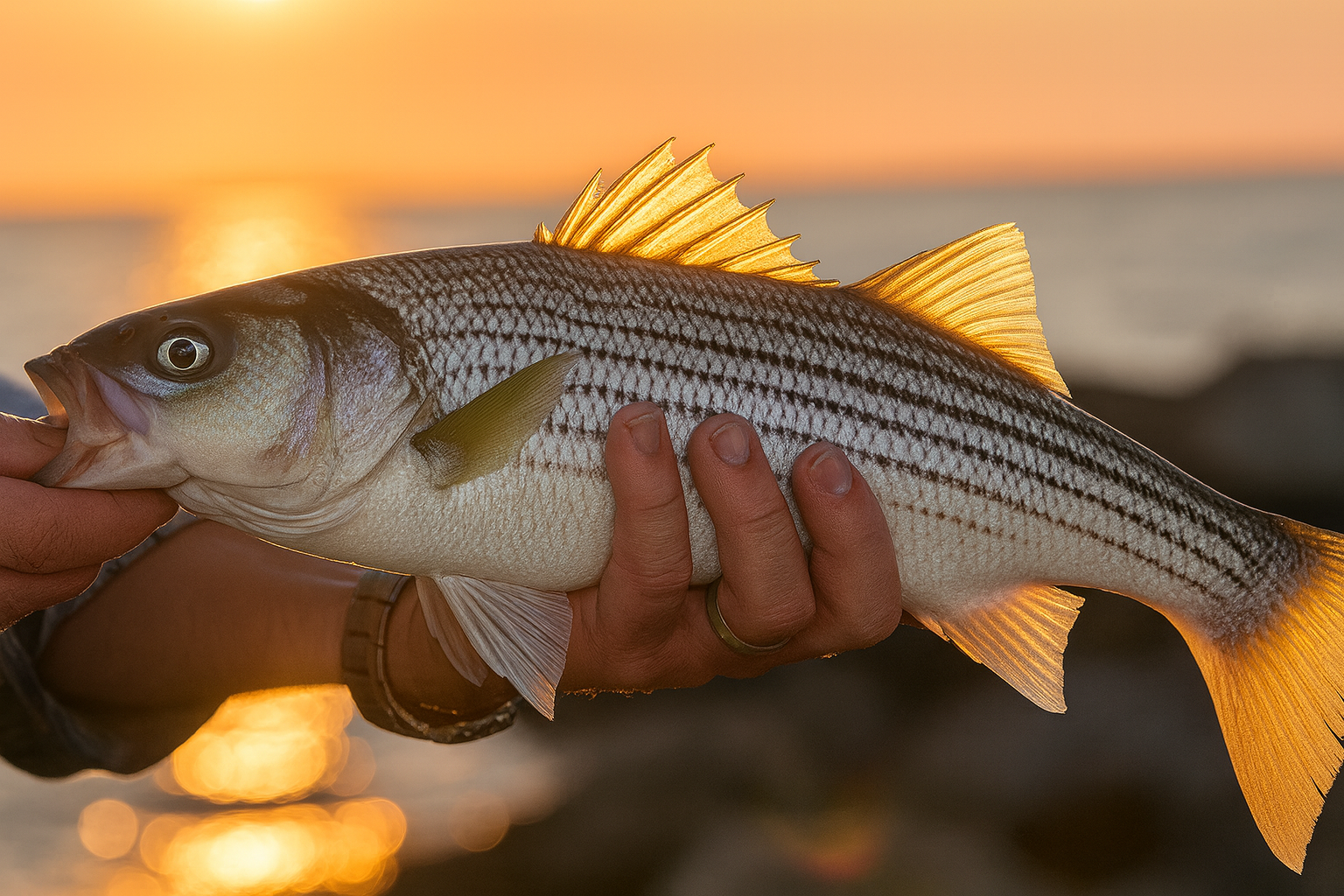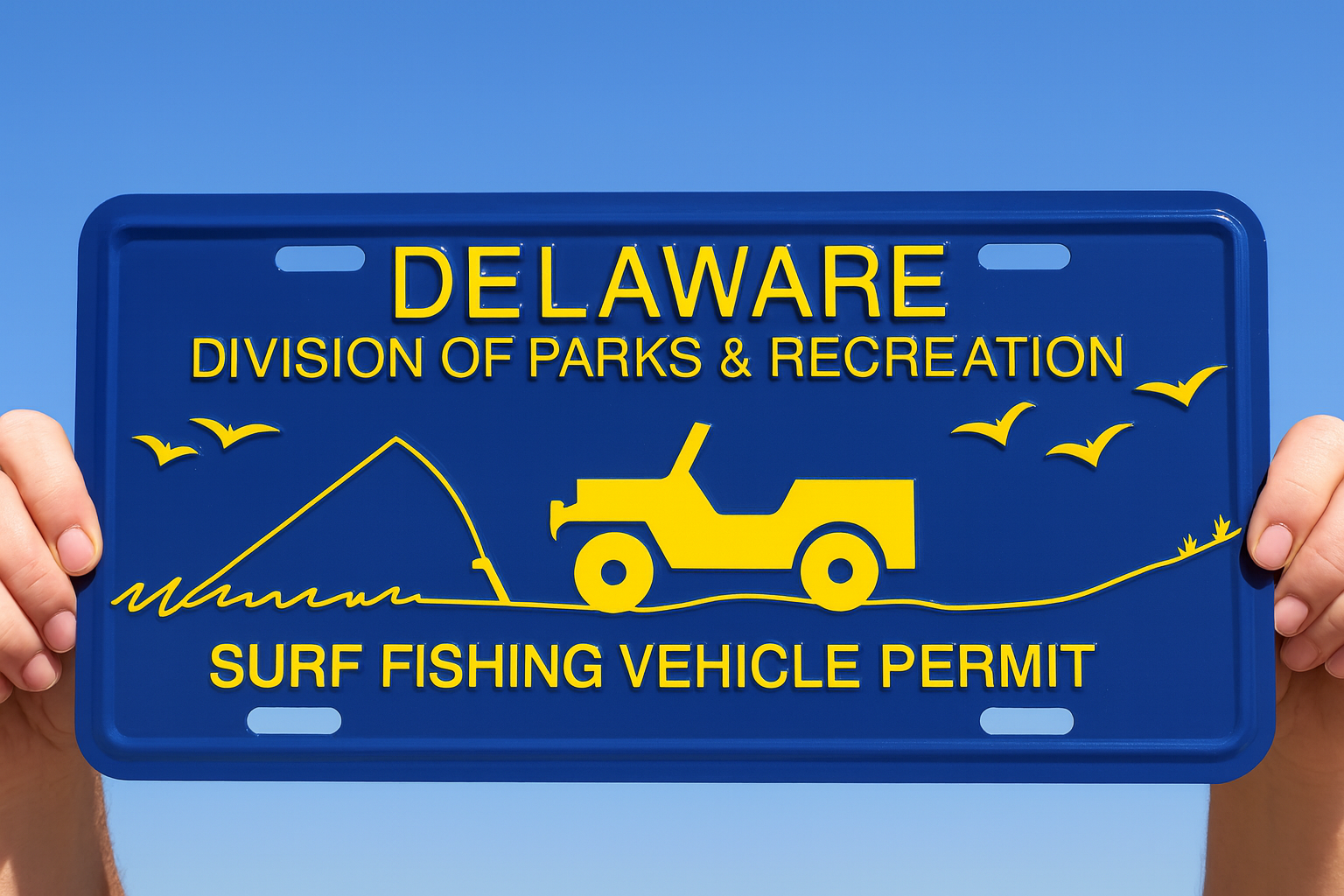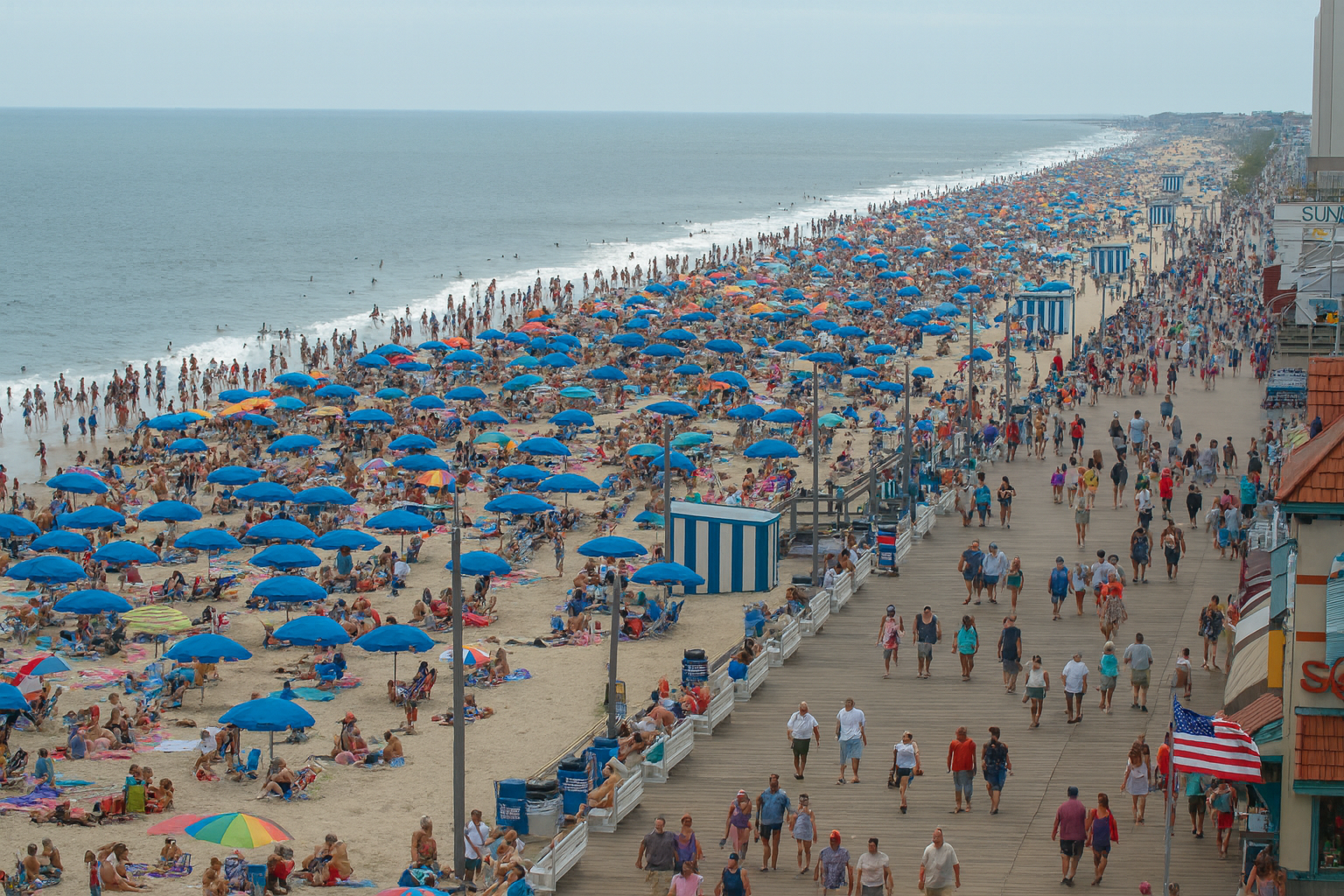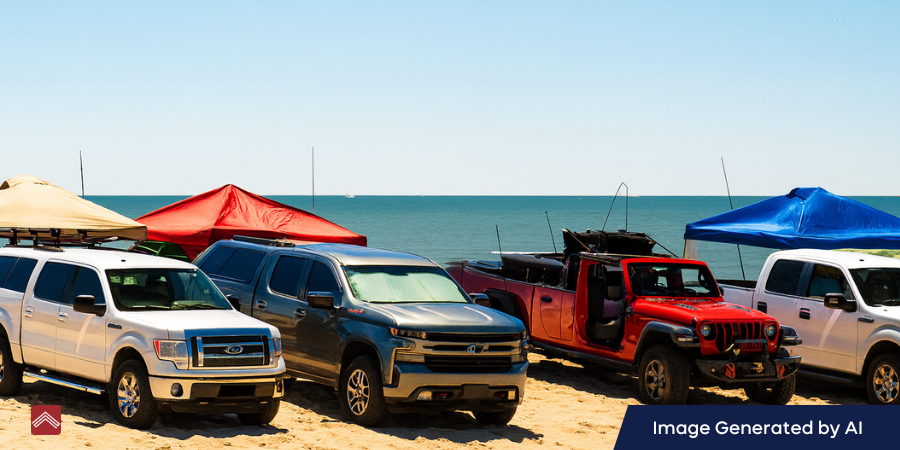Surf fishing is one of Delaware’s most beloved coastal traditions, and this past summer it became easier to enjoy.
On July 12th, the Delaware Department of Natural Resources and Environmental Control (DNREC) eliminated the need for weekend and holiday reservations at the majority of the state’s drive-on beaches.
The change followed two years of reviewing visitor demand, beach capacity, and feedback from anglers and residents.
A Major Shift for Surf Fishing Access
The July update gave anglers greater freedom to head out to the beach without the extra step of booking ahead.
DNREC announced that seven popular drive-on beaches would no longer require reservations, freeing up nearly 64 percent of surf fishing access statewide.
While reservations had been introduced in 2023 to control crowding, state officials recognized that not every beach reached capacity and that a more flexible system was possible.

Image Generated by AI
Beaches Without Reservations
The following beaches were removed from the reservation system starting July 12th:
- Key Box, Conquest and Faithful Steward at Delaware Seashore State Park
- York, Middle and South beaches at Fenwick Island State Park
- Beach Plum Island north of Lewes
These locations had rarely filled under the reservation program, with the exception of the Fourth of July holiday, which continued to draw larger crowds.
Where Reservations Remained in Place
While the majority of beaches opened up, DNREC kept reservations in place at the state’s most in-demand surf fishing spots.
From Memorial Day through Labor Day, reservations were still required between 8am and 4pm at the following locations:
- Gordons Pond, Herring Point, Navy Crossing and Point Crossing at Cape Henlopen State Park
- 3 R’s at Delaware Seashore State Park
These locations typically experience heavier traffic, and the system provided assurance for anglers who preferred knowing they would not be turned away.
Balancing Flexibility and Conservation
The summer adjustments reflected DNREC’s effort to balance convenience for anglers with sustainable management of natural resources.
Surf fishing participation has grown steadily in recent years, and the reservation system was designed to reduce congestion and maintain the quality of the experience.
At the same time, the decision to relax rules at lower-demand beaches acknowledged that many residents and visitors value spontaneity.
This hybrid approach allowed those who wanted guaranteed access to continue reserving, while others could simply head to the beach without planning ahead.

Image Generated by AI
How the Reservation System Worked in 2025
For the five high-demand beaches where reservations remained in effect, DNREC continued to open slots weekly:
- Reservations opened each Tuesday and Wednesday for the upcoming weekend.
- Only anglers with valid 1-year and 2-year surf fishing permits could reserve.
- Each permit holder was limited to one reservation per day.
Weekday access was still possible without a reservation using an off-peak permit, except when holidays fell on weekdays.
DNREC staff also monitored surf and weather conditions to adjust reservation numbers when appropriate, ensuring space was not left unused.
We are anticipating this to carry on into next year & be the rules for next summer and years to come, but we will publish a blog when we get closer to next in season summer.
Oversight and Visitor Experience
Throughout the season, the Delaware Natural Resources Police Park Rangers Unit maintained patrols on drive-on beaches, checking permits, fishing gear, and reservations where required.
The enforcement helped maintain order while also ensuring fairness for permit holders.
Feedback from visitors showed that the new balance between reservation and non-reservation beaches gave anglers more choices, whether they wanted certainty or spontaneity.

Image Generated by AI
Looking Back at the Summer
The 2025 summer season marked a turning point in how Delaware manages its surf fishing program.
By dropping reservations at most beaches while retaining them at the most crowded spots, DNREC created a more flexible and balanced system.
As the department continues to review occupancy levels and visitor experiences, further refinements may come in future years.
The possibility of reinstating one-time reservations for high-demand holidays like the Fourth of July remains under consideration.
Did you fish at Delaware’s drive-on beaches this summer? Share your experience in the comments and follow our blog for more coverage of coastal news, events, and community updates.
Sources: Delaware.gov, Delaware Live


